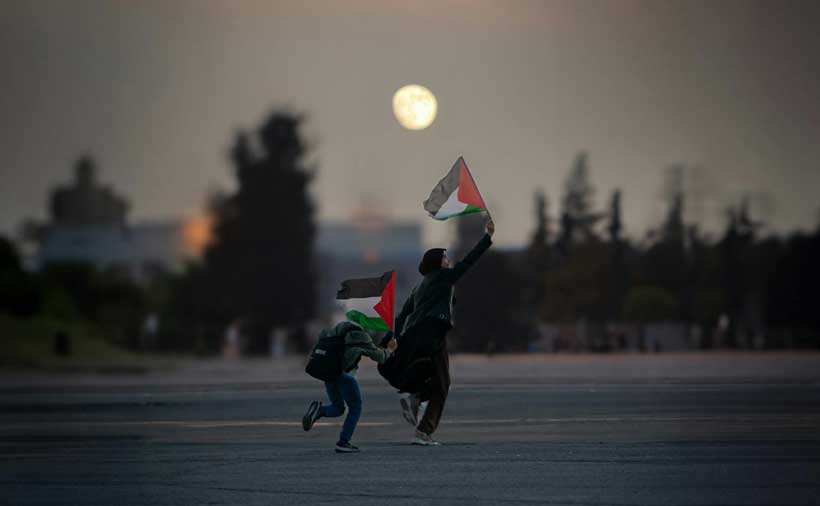Since 1998, a number of western countries, including Britain, France, Canada, Australia, and Belgium, are said to have been preparing to formally recognize an independent Palestinian state at the UN General Assembly which marks an important turning point in the international system. This means that a total 147 of 193 UN member states already recognizes it. Although full UN membership still requires Security Council approval, where the US holds a veto and remains a decisive obstacle in real sense. However, this still weaken the U.S dominance. From the perspective of Pro-Palestinians, this move is not entirely symbolic because it is altering narratives and is stimulating momentum towards the fight for true legitimacy, even if the way forward is being obstructed there is still hope.
Major Issues
The narrative of Palestinian statehood remains contested because Israel, under the administration of Netanyahu has rejected any possibility of it. U.S is still pointing towards a two state solution where Palestine and Israel should step forward to negotiate the possibility of two States, but these negotiations has been stalled since 2014. There are two aspects to western recognition, first it is seen as a solidarity with Palestine and but on the other hand this recognition is used as a diplomatic tool to pressure Netanyau into ending their mass destruction in Gaza. But there’s still more challenges to Palestine, for instance lacking control over their territory and even if Palestine joins the UN, it doesn’t guarantees their complete independence.
Nevertheless these steps are bringing a massive shift in diplomatic balance, signiling divisions of opinions within the West on handling the conflicts in Middle East and Israel’s sole control over the narrative (that only Israel is the legitimate leader and de-legitimatizing the idea of Palestinian statehood).
Key Stakeholders
Palestinians are seeking legitimacy and equality in global diplomacy. Palestinians are well aware that only sovereignty and legitimacy over their territory will not ensure their safety from Israel’s occupation and interference, but it might bestow them political leverage to keep fighting for their sovereignty.
Israel is opposing recognition, arguing that t rewards Hamas. Israel also believes that there is no true leadership in Palestine to negotiate with in order to make a collective decision rearding the future of Palestine justifying their occupation. However, Western recognition did somehow has weakened Israel’s narrative.
United States is a closest ally of Israel due to which the biggest obstacle to Palestinian obstacle remains unmoved. Washington is continuously restricting Palestinian officials participation in the UN. Even the two state solution given by the U.S is in favor of Israel to protect their diplomatic interests since Israel has the biggest lobby existing in the U.S.
European powers including Belgium, Britain, France are propagating towards recognizing a Palestinian state due to the obvious humanitarian crises and a the conduct of a literal genocide in Gaza. European states see this a moral step as well as a tool to put pressure on Israel to engage in peaceful efforts instead of mass massacres. This also signals that the EU states are no longer blindly following the s]foot steps of Washington but they can differentiate wrong from right therefore supporting Palestine as opposed to the U.S – the Israel’s biggest ally.
Implications
Here lies another issue and that is recognition alone does not resolve the lack of sovereignty, Palestinians control over their borders or their UN membership, which is the biggest obstacle due to the U.S veto. For obvious reasons, U.S has the biggest pro-Israel lobby protecting them diplomatically, militarily and financially. This might lead to broader rifts between the US and its Western allies because their interests are divided in the situation at hand.
Analysis
From a rational pro-Palestine perspective, this recognition is not merely symbolic because step towards diplomatic legitimacy ends up weakening the Israel’s attempt to monopolize and assert their dominance. This whole situation is shaping the global narrative on this conflict I-e: their support towards Palestine. Even though, recognition alone is not enough to end the hardships of Palestinians and them surviving under occupation but it does have its significance, for instance, strengthening Palestine’s position on the international forums to pressuring Israel into ending their illegitimate occupation.
This reconition in real sense is a stepping stone. The real win would be the transition of these symbolic gains into concrete achievements which means Palestinians control over their homeland’s borders, freedom, sovereignty and actual independence.
with information from Reuters

